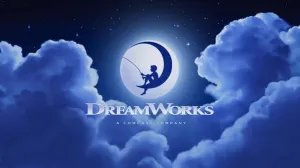El Camino: A Breaking Bad Movie arrives on Netflix with the daunting challenge of having to bring Breaking Bad fans back into creator Vince Gilligan’s dark noir world of drug dealers and psychopaths six years after the series has wrapped without stepping on the toes of current spinoff series Better Call Saul and its interquel storyline to Breaking Bad. Thankfully, El Camino threads the needle of being a fitting (if only somewhat necessary) epilogue to the Breaking Bad story, which is propelled by the intrigue of filling in some key Breaking Bad scenes from a new perspective.
Videos by ComicBook.com
The story of El Camino picks up just moments after the ending of Breaking Bad, as Jesse Pinkman (Aaron Paul) makes his escape from the compound of Aryan Brotherhood member Jack Welker (Michael Bowen), where Jesse was enslaved for weeks and forced to cook his signature high-grade blue meth. Walter White (Bryan Cranston) may have set Jesse free physically, but in many ways, Jesse is still very much a prisoner of his mind, thanks to the deep traumas he suffered both in Jack’s custody (under the “care” of creepy psycho, Todd) and through his partnership with Walter White. As Jesse is forced into a desperate race against the clock to get out of town before law enforcement closes in, bad memories keep getting triggered, forcing Pinkman to wrestle with many demons of the past while trying to ensure some kind of future for himself.
El Camino is ultimately a nice little Breaking Bad epilogue. It’s not at all crucial to the series canon or must-see viewing for those who completed the Breaking Bad journey, but it is a solid and fulfilling extension of Jesse Pinkman’s story with some wonderful and surprising callbacks to the original series. As a story, El Camino (which was both written and directed by Gilligan) feels like one of Breaking Bad‘s better non-linear episodes, which would often jump back-and-forth across time while weaving a larger thematic narrative. In this case, the thematic narrative is clearly about karma and whether there is such a thing as truly righting the moral scales after one has done so much wrong. Breaking Bad’s narrative examined that theme, deeply, from Walter White’s perspective, but Jesse was mostly used as a means of examining Walter’s corrosive influence through a supporting character. El Camino is the first time we’ve gotten to go deep into Jesse’s head to see how he views himself and his own actions independent of Walter, and it’s a welcome character study that Paul pulls off with more nuance and intensity than he offered in the show.
Gilligan thankfully keeps the psycho-drama elements of the film spaced out and balanced against the pulse-pounding thrill of Jesse’s minute-to-minute run from the law. Jesse’s flashbacks are triggered in organic and logical ways as he is forced on a mission to retrace his steps and return to familiar locales, which are now under heavy police lockdown. The segments of Breaking Bad events told from Jessie’s perspective are especially interesting, and not just because of the many fun character cameos. If there is one thing that El Camino can hold up as an accomplishment, it’s that, in filling in Jesse’s side of the story, the film does, in fact, manage to enhance the Breaking Bad experience by offering deeper shades of character development and interaction than the show could afford to invest screen time in. El Camino indeed manages to justify its own existence, even if it’s not perfect in the execution of that story.
The problem with El Camino (much like the Entourage movie before it) is that in trying to pick up right from the ending of Breaking Bad, this epilogue film can’t hide just how much time has passed. Paul and other Breaking Bad actors who show up in the film all look conspicuously aged and, in some cases, the difference is very distracting (sorry, no Marvel de-aging VFX budget here). Aside from having to circumvent that hurdle, El Camino also has the budgetary limitations of a modest TV movie and feels more like a collection of simple set pieces and performance showcases between one or two players than it is a spectacle or “event” film.
That’s all to say: if El Camino had aired as episodes of Breaking Bad instead of being a feature film, no one would know the difference. Whether that’s a bad or good thing will depend on the viewer. If nothing else, the film is a nice little reminder that the world of Breaking Bad is still unfolding and expanding in the Better Call Saul spinoff and perhaps direct some new fans in that direction.
Rating: 4 out of 5
El Camino: A Breaking Bad Movie is now streaming on Netflix.








